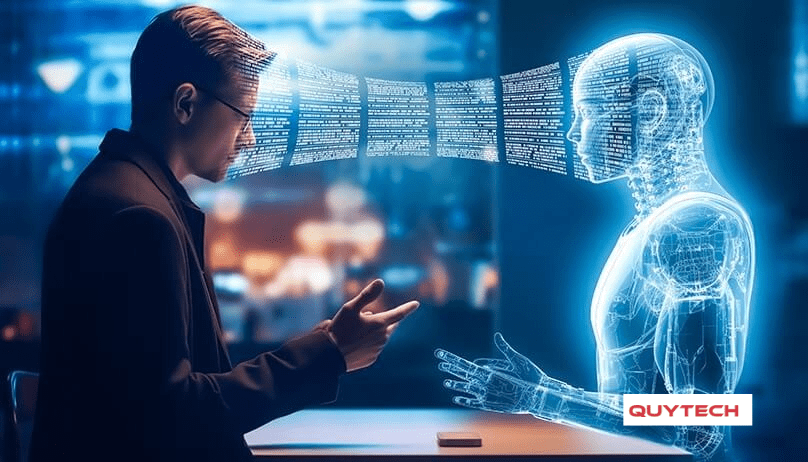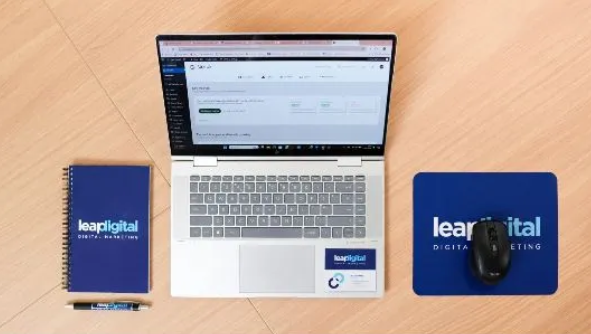Artificial Intelligence (AI) is increasingly reshaping various industries, and Human Resources (HR) is no exception. From automating tedious tasks to enhancing employee engagement, AI offers transformative potential for HR professionals. This blog explores how AI is revolutionizing hiring processes and employee interaction, illustrating the benefits and addressing the challenges, while also highlighting the role of AI development company in driving these innovations.
Understanding AI in Human Resource
Artificial Intelligence refers to the simulation of human intelligence in machines programmed to think and learn. In the context of AI in Human Resource, Encompasses various technologies such as machine learning, natural language processing, and predictive analytics, all of which enhance HR functions.
Historical Context
Traditionally, HR tasks were manual and labor-intensive, from sifting through stacks of resumes to conducting face-to-face interviews. Over time, technology introduced tools to streamline these processes. AI represents the next evolution, promising greater efficiency and more nuanced insights into both recruitment and employee management.
Revolutionizing Hiring Processes with AI
Automated Resume Screening
AI-powered resume screening tools use algorithms to parse and evaluate resumes. These tools can quickly sift through large volumes of applications, identifying candidates who meet the required criteria.
Benefits: This reduces the time HR teams spend on manual screening, ensuring that only the most qualified candidates proceed to the next stage. It also minimizes human error and bias, leading to a more objective selection process.
AI-Powered Job Matching
AI systems can analyze job descriptions and match them with candidate profiles. These systems assess skills, experience, and even cultural fit to recommend the best candidates for each role.
Benefits: By aligning candidate qualifications with job requirements more accurately, AI increases the chances of finding the right fit, reducing turnover and improving job satisfaction.
Chatbots for Initial Interviews
AI chatbots are revolutionizing the preliminary interview stage. They can conduct initial interactions, ask standard questions, and evaluate responses based on predefined criteria.
Benefits: Chatbots offer instant feedback to candidates, saving HR professionals time and providing a more consistent interview experience. They can also handle multiple candidates simultaneously, streamlining the process.
Predictive Analytics for Hiring
Predictive analytics leverages data to forecast a candidate’s potential success and fit within the organization. AI tools analyze historical data and trends to make data-driven predictions.
Benefits: This approach enhances decision-making by providing insights into how well a candidate might perform and integrate into the company, leading to more informed hiring decisions.
Enhancing Employee Engagement with AI
Personalized Learning and Development
AI-driven platforms recommend training and development opportunities tailored to individual employees’ needs and career goals. These systems analyze employee performance and preferences to suggest relevant learning paths.
Benefits: Personalized development plans foster continuous learning and skill enhancement, leading to higher employee satisfaction and retention.
AI-Driven Feedback and Surveys
AI tools automate the process of gathering and analyzing employee feedback. Real-time surveys and sentiment analysis provide actionable insights into employee morale and areas needing improvement.
Benefits: Timely feedback helps address issues before they escalate, improving overall workplace culture and employee engagement.
Sentiment Analysis
AI-powered sentiment analysis tools assess employee emotions and attitudes through communication channels such as emails and messages. These tools identify patterns and trends that indicate employee satisfaction or dissatisfaction.
Benefits: Early detection of potential issues allows HR to address concerns proactively, enhancing the work environment and reducing turnover.
AI in Performance Management
AI systems track and evaluate employee performance using various metrics and data points. These tools provide continuous feedback and performance insights.
Benefits: Continuous performance monitoring leads to more accurate and fair evaluations, helping employees understand their strengths and areas for improvement.
Overcoming Challenges and Ethical Considerations
Bias in AI Systems
AI systems can inadvertently perpetuate existing biases if not carefully managed. It’s crucial to ensure that algorithms are designed to minimize bias and promote fairness.
Solutions: Regularly review and update AI models to ensure they are free from bias. Implementing diverse data sets and involving diverse teams in the development process can also help.
Data Privacy and Security
Handling sensitive employee data requires stringent security measures. AI tools must comply with data protection regulations and ensure that employee information is secure.
Solutions: Adopt robust data security protocols and ensure compliance with relevant regulations, such as GDPR. Transparency in data usage and obtaining consent from employees are also essential.
Human Touch in AI-Driven Processes
While AI enhances efficiency, maintaining the human element in HR is crucial. AI should complement, not replace, human judgment and empathy.
Solutions: Use AI to handle routine tasks while preserving human oversight for complex and sensitive situations. Balance technology with personal interactions to maintain a supportive work environment.
Future Trends in AI for Human Resource
Advancements in AI Technology
AI technology is continuously evolving, with advancements in machine learning and natural language processing promising even greater capabilities. Using Generative AI Development services for instance, one can create new content and solutions based on existing data, offering innovative applications in HR such as automated report generation and content creation for employee communications.
Integration with Other Technologies
AI is increasingly being integrated with other technologies such as blockchain for secure record-keeping and VR for virtual onboarding and training. These integrations enhance the efficiency and effectiveness of HR practices.
Evolving Role of HR Professionals
As AI takes on more routine tasks, HR professionals will focus more on strategic roles such as talent management, organizational development, and employee experience. This shift will require HR professionals to develop new skills and adapt to a technology-driven landscape.
Partnering with AI Development Companies
Choosing the Right Partner
AI development companies play a crucial role in implementing AI in Human Resource. When selecting a partner, consider their expertise in AI technologies, experience in developing custom solutions, and their ability to integrate these solutions into your existing systems.
Benefits of Collaboration
Collaborating with AI development companies ensures that your AI tools are tailored to meet your specific needs. These companies provide ongoing support, updates, and enhancements to ensure that your AI solutions remain effective and up-to-date.
Conclusion
AI is profoundly transforming HR, from streamlining hiring processes to enhancing employee engagement. By leveraging AI tools, HR professionals can make more informed decisions, improve efficiency, and foster a positive work environment. As AI continues to evolve, embracing these technologies while addressing associated challenges will be key to harnessing their full potential.









